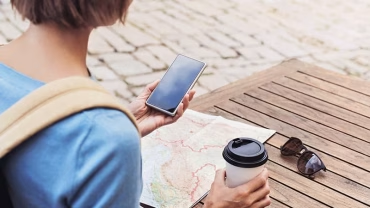Why is it that nobody really cares about the most unique travel experiences? Travelers chase “hidden gems,” “offbeat adventures,” and “exclusive destinations,” yet, somehow, these places quickly become mainstream. A once-untouched paradise gets discovered, and within months, it is flooded with tourists, selfie sticks, and overpriced souvenirs. Is uniqueness in travel a myth, or are we just looking at it all wrong?
The truth is, in today’s hyper-connected world, the moment a place is labeled as “unique,” it begins to lose its exclusivity. Travel bloggers, influencers, and tour companies capitalize on the allure of undiscovered spots, unintentionally turning them into overcrowded destinations. A remote village in Thailand, a pristine Icelandic hot spring, or a quiet beach in the Philippines—all once considered secret escapes—have now become just another stop on the global traveler’s checklist.
Moreover, many travelers claim they seek authenticity, but their choices often contradict this. Instead of engaging with local cultures or venturing into the unknown, they follow carefully curated itineraries, booking the same “authentic” experiences as everyone else. The irony? The pursuit of unique travel often leads people to the same places.
In this article, we’ll explore why unique travel experiences often go unnoticed, why most travelers still follow the crowd, and how you can truly find something different. Whether you’re an adventurous explorer or someone who just wants to break away from the typical tourist trail, understanding this travel paradox will help you redefine what a “unique” journey really means.
Defining Unique Travel Experiences
A unique travel experience is often described as something that stands apart from conventional tourist activities. It could be staying in a treehouse deep in the Amazon rainforest, dining with a remote tribe in Africa, or hiking an undiscovered trail in the Himalayas. These experiences promise adventure, cultural immersion, and an escape from the ordinary. But how unique are they really?
The travel industry has turned many “exclusive” experiences into mainstream tourist attractions. What was once a hidden gem is now a highly marketed destination. Take Iceland’s Blue Lagoon, for example—once a little-known geothermal spa, it is now one of the country’s most visited places, with tourists booking months in advance for a dip in its warm waters. The same can be said for Thailand’s Maya Bay, which had to be closed due to overtourism after being featured in The Beach movie.
The paradox is clear: as soon as a destination or experience gains recognition, it loses its uniqueness. This raises an important question—are truly unique travel experiences even possible in today’s world?
Discover unique stays and accommodations around the world with Primebeds.
Are Unique Travel Experiences Overrated?
The Reality vs. Expectation Gap
Social media has revolutionized how we discover travel destinations. Instagram, YouTube, and TikTok showcase breathtaking landscapes, hidden waterfalls, and “secret” locations. However, the reality is often far from what’s portrayed online.
A classic example is Bali’s waterfalls. Once secluded and peaceful, they are now overrun with influencers trying to capture the perfect shot. The serene paradise depicted online turns into a queue of tourists waiting for their turn to pose in front of the cascading water.
Similarly, hiking Machu Picchu might seem like a once-in-a-lifetime journey, but you’ll likely find yourself surrounded by hundreds of other travelers making the same pilgrimage. The expectation of solitude and discovery often clashes with the reality of mass tourism.
This reality vs. expectation gap leads to disappointment for many travelers. What was supposed to be a unique adventure turns into just another crowded tourist experience.
For travelers seeking authenticity, the challenge is to dig deeper—venture beyond what’s trending online, interact with locals, and find lesser-known paths.
Explore offbeat travel destinations with Lonely Planet.
Why Nobody Cares About Unique Travel Experiences?
The Harsh Reality of Modern Travel
Most people don’t truly care about unique travel experiences for several reasons:
- They prioritize comfort over adventure. Many travelers prefer familiar places with good infrastructure, reliable transportation, and well-reviewed accommodations over the uncertainty of offbeat locations.
- They follow travel trends instead of personal preferences. Instead of seeking places that resonate with their interests, travelers often visit locations that are popular or “Instagrammable.”
- Social media dictates what’s “cool.” Travelers may not even realize they are chasing trends instead of personal passions. The fear of missing out (FOMO) often drives destination choices.
- Unique places often lack infrastructure. Hidden gems may not have comfortable accommodations, Wi-Fi, or easy accessibility, making them less appealing to the average traveler.
As a result, many people would rather visit a well-known, easy-to-access destination than take risks for something truly different.
Book unique accommodations worldwide with Airbnb.
Looking for truly unique stays? Explore exclusive boutique hotels and hidden retreats on Primebeds.
The Influence of Social Media on Travel
The Instagram Effect on Destinations
Social media has transformed how we perceive and choose travel destinations. What was once a quiet, unknown village can quickly become a tourist hotspot after being featured in a viral video. This phenomenon, often called the “Instagram effect,” has drastically changed travel behaviors.
Take Santorini’s sunset in Oia—what used to be a peaceful, romantic moment has now turned into a crowded event, with thousands of tourists scrambling for the perfect photo. Similarly, Japan’s Arashiyama Bamboo Forest, once a serene retreat, is now packed with tourists trying to recreate the famous Instagram shots they’ve seen online.
The irony is that social media, which was supposed to inspire unique travel, has instead led to the homogenization of travel experiences. Instead of discovering new places, travelers are repeatedly funneled to the same viral locations.
To avoid this, consider traveling off-season, exploring alternative spots, and prioritizing personal experiences over trending destinations.
Read more about responsible tourism with National Geographic Travel.
Do People Really Want Unique Travel Experiences?
The Comfort of Familiarity
Many travelers like the idea of unique experiences, but when faced with the unknown, they often retreat to familiar places.
For example, Japan offers thousands of hidden villages and untouched landscapes, yet most tourists stick to Tokyo, Kyoto, and Osaka. The reason? These cities provide comfort—easy navigation, English-speaking locals, and well-documented attractions.
Similarly, Europe has countless off-the-beaten-path towns, but most travelers choose Paris, Rome, or Barcelona because they feel more accessible and recognizable.
Unique travel often comes with unpredictability, cultural barriers, and the risk of disappointment. For many, the security of a well-known place outweighs the thrill of the unknown.
To truly experience something different, travelers must step out of their comfort zones, embrace spontaneity, and be open to destinations that may not be trending online.
Find authentic cultural experiences with GetYourGuide.
Want a truly unique stay during your travels? Browse luxury and offbeat stays on Primebeds.
Conclusion: Rethinking Unique Travel Experiences
So, do unique travel experiences still exist? Yes, but not in the way you might think.
True uniqueness isn’t about finding the next undiscovered location—it’s about how you experience a place. Whether you’re in a bustling city or a remote village, the key to a memorable journey lies in genuine interactions, personal discoveries, and embracing the unexpected.
Instead of chasing viral destinations, focus on meaningful experiences. Take a cooking class with a local chef, volunteer in a rural community, or explore a city without an itinerary. When you stop looking for uniqueness, you might just find it.
Are you ready to travel differently? Let your journey be defined by moments, not just destinations.





Comment (0)